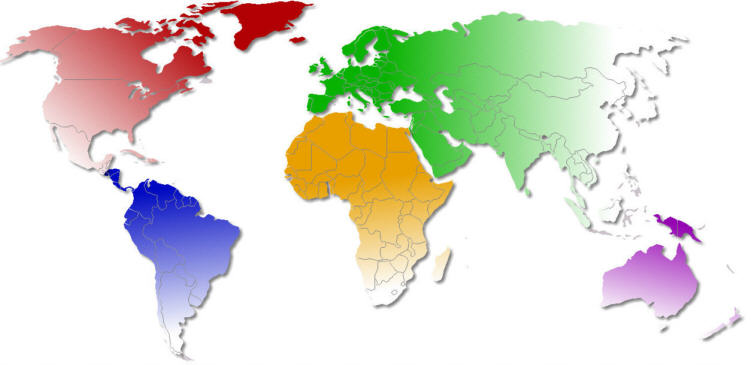Fields & Field Requirements
- Field Requirements
- American Politics
- Comparative Politics
- International Relations
- Political Theory
- Methodology
 Graduate students interested in studying comparative politics at UCSD enjoy excellent resources from which to build successful careers. Through our faculty and affiliated institutions both at UCSD and across the UC system, we offer students an exceptional environment for the pursuit of the deep substantive knowledge and advanced theoretical and empirical tools required to produce first-rate scholarship.
Graduate students interested in studying comparative politics at UCSD enjoy excellent resources from which to build successful careers. Through our faculty and affiliated institutions both at UCSD and across the UC system, we offer students an exceptional environment for the pursuit of the deep substantive knowledge and advanced theoretical and empirical tools required to produce first-rate scholarship.
The integration of theoretical rigor, empirical sophistication and depth of knowledge both within and across traditional regional boundaries is the defining feature of comparative politics at UCSD. We pride our department both for the breadth of its substantive and theoretical expertise. This expertise is augmented greatly by the department's faculty in the American, International Relations, Methodology, and Theory fields, as well as associated faculty at the School of Global Policy and Strategy (GPS), the Center for U.S.-Mexican Studies, the Center for Iberian and Latin American Studies, the Center for Comparative Immigration Studies, and the Center on Global Justice.
The nexus of theoretical precision and substantive knowledge is a direct outgrowth of the department's emphasis on the application of sophisticated theory and methods, often developed in the study of U.S. and Western European politics, to a more broadly comparative perspective. Our commitment to theoretical development is evident in our leading position in the study of democratic institutions, political economy, and political and economic development. Kaare Strom, William Chandler, and Arend Lijphart (emeritus) are known internationally for their contributions to the study of parliamentary and presidential systems. UCSD political scientists have also made fundamental theoretical contributions to the study of political and economic systems and reforms in Asia (Peter Cowhey, Stephan Haggard, Ellis Krauss, Germaine Hoston, Megumi Naoi, Samuel Popkin, Molly Roberts, Susan Shirk), Europe (Peter Gourevitch, Victor Magagna), Latin America (Scott Desposato, Simeon Nichter, Sebastian Saeigh, Peter Smith, Wayne Cornelius (emeritus), Ann Craig (emeritus), Paul Drake (emeritus)). Soviet successor states (Philip Roeder), and Africa (Claire Adida, Karen Ferree, Clark Gibson). The unifying element in this large and diverse body of work is a commitment to empirically informed research that advances the state of theoretical precision within the discipline.
Our students enjoy an impressive breadth and depth of substantive and regional expertise and resources. Our department is home to many preeminent scholars of Latin American politics, and students are positioned to take advantage of the incredibly diverse opportunities and resources available through the Center for U.S.-Mexican Studies and the Center for Iberian and Latin American Studies. Similarly, our department has cemented its position as an academic powerhouse for the study of China, and students in the department benefit from new programs such as the 21st Century China Program housed at the School for Global Policy and Strategy. Other UC-wide programs for the study of politics, such as the Institute on Global Cooperation and Conflict and the Center for Comparative Immigration Studies, offer intellectual and financial resources, and have funded UC students' dissertations through research and travel grants. With our adjunct faculty at the School of Global Policy and Strategy (GPS), we can boast an impressive breadth of faculty, academic programs, and research projects regarding Asia and the Pacific Rim. The launch of the Policy Design and Evaluation Lab in 2013 has provided comparative faculty and graduate students alike significant opportunities for research funding and networking.
It is our commitment to theoretically informed, empirically precise analysis that has put recent UCSD graduates at the forefront of their field. UCSD graduates can be found researching and teaching at some of the nation's finest departments. Over the past five years, we haver placed our comparative graduate students at the University of Georgia, UCSD's School of Global Policy and Strategy, the University of North Carolina-Chapel Hill, the University of British Columbia, Syracuse University, the University of Arizona, the University of Houston, the London School of Economics, Harvard University, Dartmouth College, and CIDE (Mexico).
Students in comparative politics are required to take the core course sequences in both principles and methods in addition to two core field seminars, Institutions and State and Society (see Field Requirements for more detail). The department offers graduate seminars on comparative topics such as divided societies, immigration, development, authoritarian politics, and the politics of post-Soviet transition, as well as regional and country-specific courses on Africa, East Asia, Eastern Europe, Latin America, Mexico, China, Japan and the former Soviet Union.